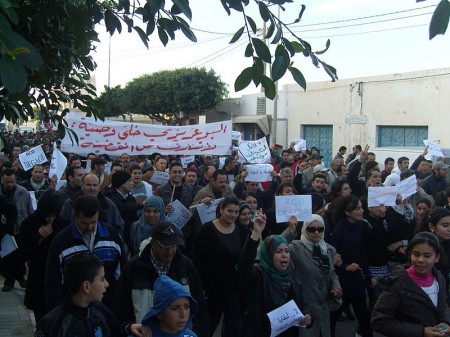“Look at Tunis and what it did. Yemen’s people are stronger.” — Yemeni protester in The Guardian
See also:
Middle and High School … from a Montessori Point of View
“Look at Tunis and what it did. Yemen’s people are stronger.” — Yemeni protester in The Guardian
See also:
(via The Daily Dish)
What protests look like:
See also:
UPDATE: We just watched the video over lunch, and it actually resulted in a very good discussion. Our morning novel discussions have been useful here, in helping us see the multiple perspectives of the actors in the street protests: the protesters and the police. After all, the police have families too.
I gave a little spiel at the beginning, to set the stage and to point out the potentially historical nature of these protests. Democracy spreading through the middle east has huge implications for a country fighting two wars in the region; not to mention the blowback from these conflicts.
The truth of the anger of the protesters in the video seemed to resonate, making poignant what could have appeared farcical. The music and the Kennedy quote also helped my students identify with these events in such a far off place.
We also touched on the role of the U.S. in supporting the Mubarak government, and the potential of the uprising to lead to an anti-US, muslim fundamentalist government (via the Muslim Brotherhood). We still need to talk about what the US should and can do to support democracy in this situation, which is so full of conflicting imperatives.
My students have been asking to write “book” reports on movies or Dr. Seuss picture books instead of novels. I am not theoretically opposed. Our theme this cycle is literary essays, with a focus on extending our thinking about issues, which can be done to any type of media: books, movies, music or even art for example. A great example is of what can be done is Richard Beck’s series of essays on the theology of Calvin and Hobbes.
… given the fact that the two lead characters are named after John Calvin and Thomas Hobbes, Calvin and Hobbes presents a dim view of human nature. … a running theme in Calvin and Hobbes is why virtue is so hard and vice so fun.
–Beck (2008) in The Theology of Calvin and Hobbes, Part 1: Human Nature Chapter 1: “Virtue needs some cheaper thrills”.
Although he’s an experimental psychologist at Abilene Christian University, Beck’s essays are fairly easy to read, and are great in how they analyze the subject work, in this case the Calvin and Hobbes cartoons, while drawing comparisons to other theological texts, from the original Hobbes’ Leviathan to recent analyses by authors like Alan Jacobs.
I think, as a condition for using an alternative to the novel, I’ll require students to read one of Beck’s essays. In fact, maybe I’ll have the entire class read the first one, “Virtue needs some cheaper thrills”, as an example of a literary essay.
As an online discussion grows longer, the probability of a comparison involving Nazis or Hitler approaches 1.
— Mike Godwin, 1989.
Our daily discussions of The Chrysalids have gone on long enough that Hitler came up. I can’t remember the details, but somehow, it occurred to one of my students that, since we don’t know exactly when the story is set, and given the outstanding question, “Did they ever find Hitler’s body?” what if Hitler turned up in the book.
Sigh.
Quite coincidentally, I ran into this article today, about Hitler’s last bodyguard. Apparently, he’s getting too old to answer all his fan mail. Tennessee gets a mention.
Sigh.
On a final note, the above quote about Godwin’s Law is a nice one to use in a cycle where we’re talking about probability.
Cheers.
Watch the malaria parasite invade a human red blood cell. It takes 30 seconds.
(via New Scientist blog)
A beautiful piece of editing. The non-verbal communication is priceless.
NPR had a great article today summarizing what’s been going on in Tunisia.
I played the article this morning. We had a little discussion about the conflicting groups in Tunisia and the possible causes of the revolution. It would be nice to be able to follow the emergence of a democracy in real-time.
